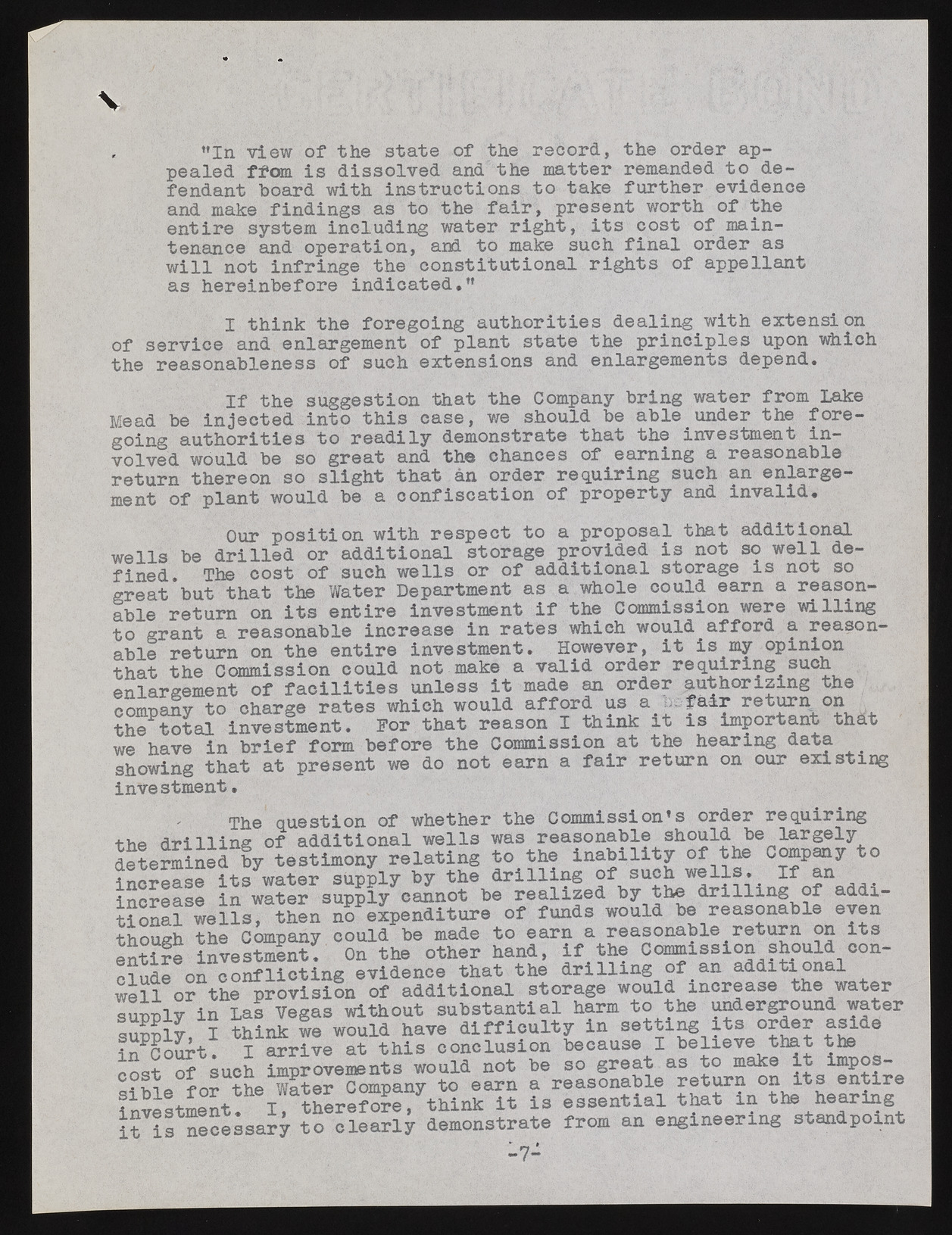Copyright & Fair-use Agreement
UNLV Special Collections provides copies of materials to facilitate private study, scholarship, or research. Material not in the public domain may be used according to fair use of copyrighted materials as defined by copyright law. Please cite us.
Please note that UNLV may not own the copyright to these materials and cannot provide permission to publish or distribute materials when UNLV is not the copyright holder. The user is solely responsible for determining the copyright status of materials and obtaining permission to use material from the copyright holder and for determining whether any permissions relating to any other rights are necessary for the intended use, and for obtaining all required permissions beyond that allowed by fair use.
Read more about our reproduction and use policy.
I agree.Information
Digital ID
Permalink
Details
More Info
Rights
Digital Provenance
Publisher
Transcription
V ”In view of the state of the record, the order appealed ffam is dissolved and the matter remanded to defendant board with instructions to take further evidence and make findings as to the fair, present worth of the entire system including water right, its cost of maintenance and operation, and to make such final order as will not infringe the constitutional rights of appellant as hereinbefore indicated.” I think the foregoing authorities dealing with extension of service and enlargement of plant state the principles upon which the reasonableness of such extensions and enlargements depend. If the suggestion that the Company bring water from Lake Mead be injected into this case, we should be able under the foregoing authorities to readily demonstrate that the investment in-volved would be so great and the chances of earning a reasonable return thereon so slight that an order requiring such an enlargement of plant would be a confiscation of property and invalid. Our position with respect to a proposal that additional wells be drilled or additional storage provided is not so well defined. The cost of such wells or of additional storage is not so great but that the Water Department as a whole could earn a reasonable return on its entire investment if the Commission were willing to grant a reasonable increase in rates which would afford a reasonable return on the entire investment. However, it is my opinion that the Commission could not make a valid order requiring such enlargement of facilities unless it made an order |uthorizing the comoany to charge rates which would afford us a hofair return on S t o t a l investment. Tor that reason I think it is Important that we have in brief form before the Commission at the hearing data showing that at present we do not earn a fair return on our existing investment. ' The question of whether the Commission^ order requiring the drilling of additional wells was reasonable should be largely determined by testimony relating to the inability of the Company to •ino-pease its water supply by the drilling of such wells. If an i S S ^ H e in water supply cannot be realized by the drilling of additional wells, then no expenditure of funds would be reasonable even though the Company could be made to earn a reasonable return on its entile investment. On the other hand, if the Commission should conclude on conflicting evidence that the well or the provision of additional st odrargiel lwionugl d° fi.an^c rease the wat+er sunnlv in Las Vegas without substantial harm to the underground water S l y I think we would have difficulty in setting its order aside inPCourtT I arrive at this conclusion because I believe that the cost of such improvements would not be so great as to make it impos- ,, , •hhp Water Comnanv to earn a reasonable return on its entire investment^61 ^&therefore^think it is essential that in the hearing it iftocessary to clearly demonstrate from an engineering standpoint -7-

